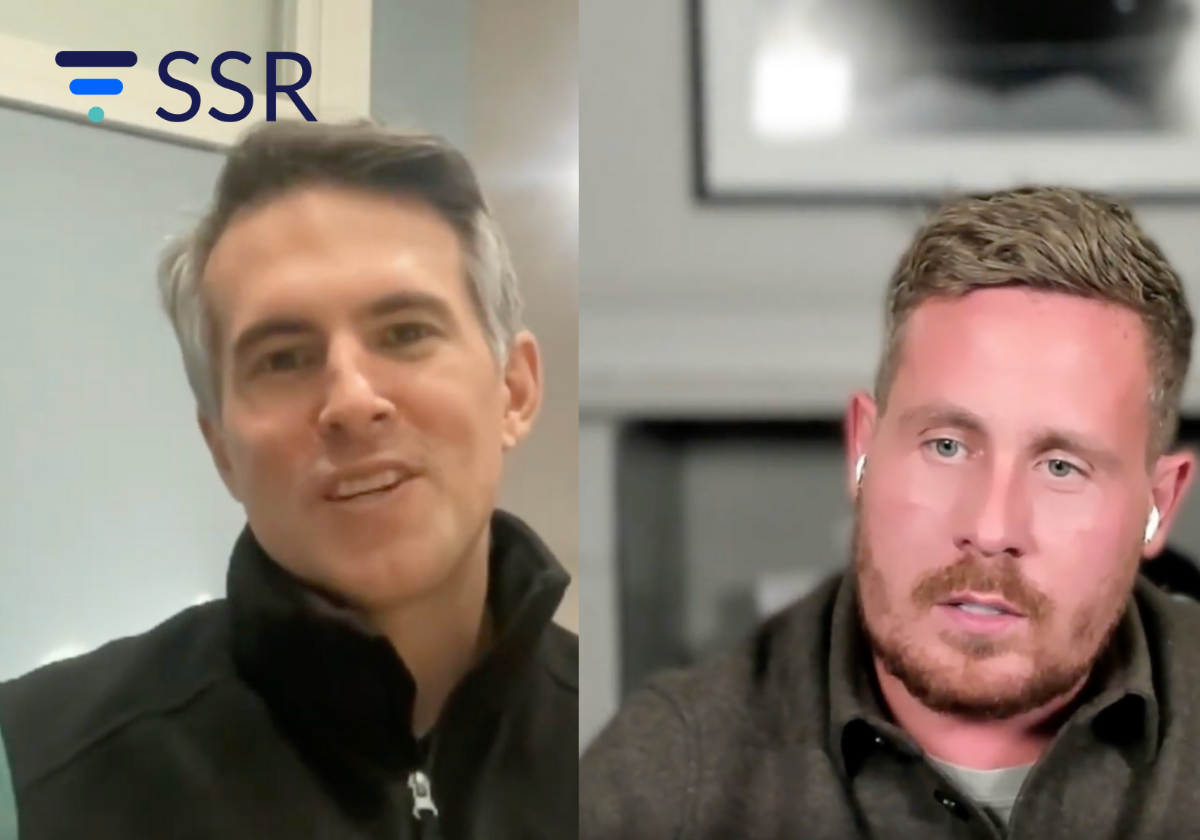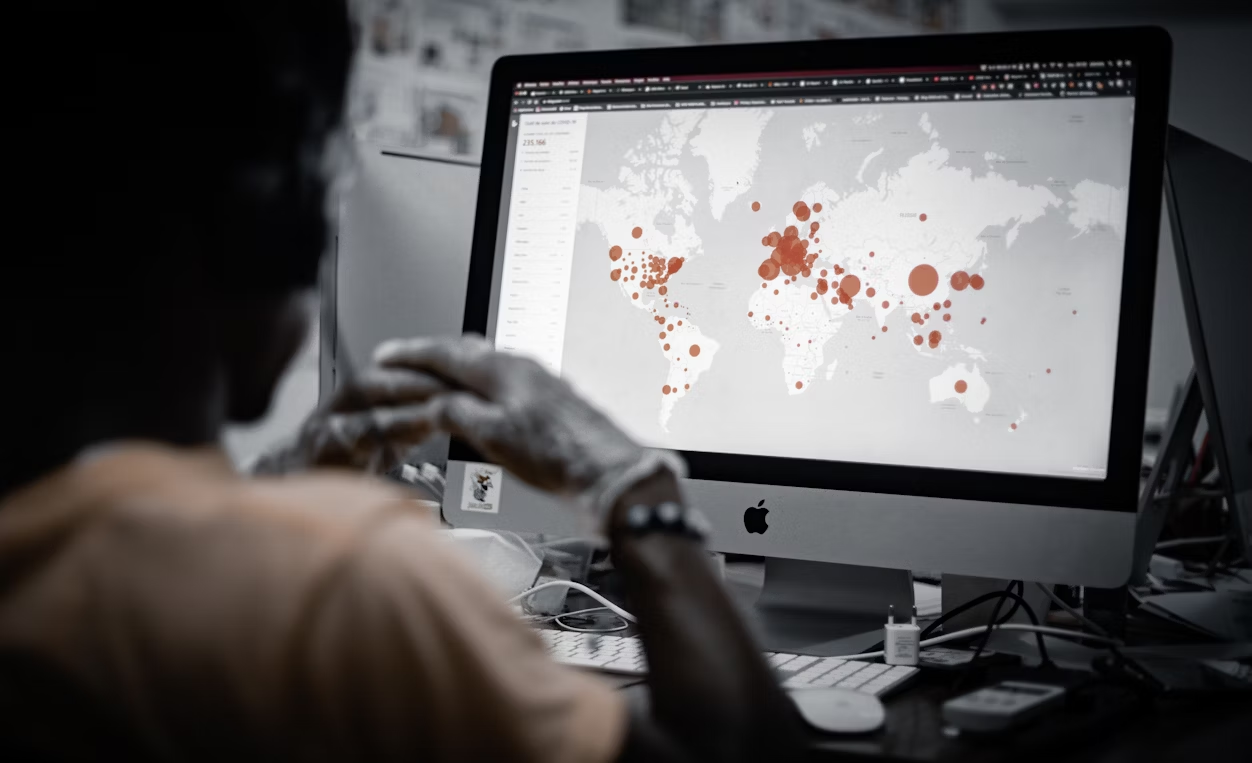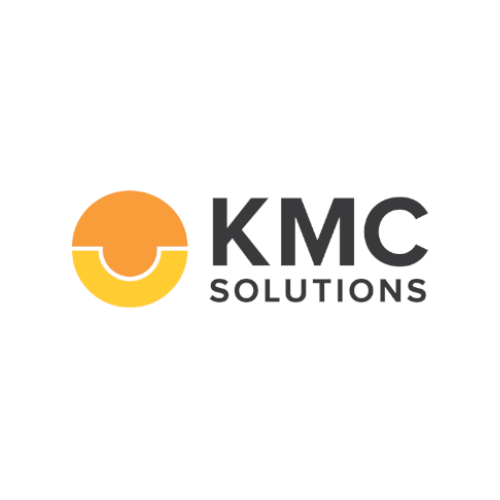Artificial Intelligence (AI) is revolutionizing various aspects of business operations, including recruitment and talent acquisition. As the job market continues to be fiercely competitive, organizations are leveraging AI technology into HR to streamline their recruitment lifecycle, making processes faster, smarter, and more efficient.
AI recruiting tools have catalyzed recruitment process automation, helping companies attract, engage, and retain top talent. This article explores how AI is shaping talent acquisition, its applications, benefits, challenges, and strategies for ethical and effective adoption.
Looking for AI-driven Tools to Optimize Your Talent Acquisition? Check Out our Best AI Recruiting Software Buyer Guide!

How AI is Used in Talent Acquisition
High chances are you may already have some form of AI in your hiring funnel without realizing it. From automating the job description distribution to candidate outreach, AI is native to plenty of HR and recruitment tools we use daily.
Candidate Screening
AI-powered tools can analyze resumes, cover letters, and other candidate data to identify top candidates based on predefined criteria. These tools can also analyze candidate behavior during interviews, including tone of voice, facial expressions, and body language, to provide additional insights into the candidate's fit for the role.
Recruitment Marketing
AI-powered tools can assist recruiters in optimizing their recruitment marketing strategy by analyzing different metrics such as job postings and social media engagement. This way, recruiters can target suitable candidates with relevant messages at the right time.
For example, Phenom People is a recruitment marketing platform that uses AI to analyze data on candidate behavior. It examines how long they spend on job postings and which social media platforms they prefer. Based on this data, the platform can, for example, provide suggestions on which job postings to promote on LinkedIn, and what messaging to use in recruitment marketing campaigns.
Another example is Eightfold.ai It offers talent intelligence solutions that can assist recruiters in identifying the right candidates for job openings and engaging with them through targeted messaging.
Candidate Engagement
Recruitment tools that incorporate AI can automate communication with candidates, sending personalized messages and updates on the hiring process. These tools can also provide candidates with information about the company and the role, answer their questions, and schedule interviews.
For example, IBM's Watson Recruitment AI can engage with candidates via email or chat, answering questions about the company and the job, scheduling interviews, and providing feedback on resumes and cover letters.
Decision-making
Using AI in HR processes allows hiring managers to analyze data on candidate performance, including interview scores, test results, and behavioral data, to identify the top candidates for the role. These tools can also provide insights into which candidates are most likely to stay with the company long-term and have the potential for growth.
Check out our Whiteboard Wednesday for a brief overview of AI and the key use cases that are already proving effective for TA teams:
Benefits of AI in Talent Acquisition
Interest in AI recruiting tools has increased substantially. In the last six months, the number of people searching for AI recruitment technology has risen by 28%. This is not surprising, though, given the numerous benefits that AI can bring to the recruitment process.
Speed and Efficiency
AI-driven recruitment platforms can significantly reduce recruitment time and costs. According to a report by Phenom, 56% of recruiters spend more than a full working day just scheduling interviews for a vacancy.
But with an AI recruitment tool in place, recruiters can free up a good amount of time they could otherwise spend screening candidates, rating their suitability, and optimizing job postings, to name a few.
Data-Driven Insights
AI tools can analyze complex data sets and generate actionable insights to inform recruiting strategies. For example, they can identify patterns in candidate behavior, predict talent gaps, and provide recommendations for targeted recruitment marketing campaigns, helping companies make better hiring decisions and improve talent retention rates.
This, in turn, helps improve the quality of hires by reducing bias in the recruitment process and identifying candidates who may have been overlooked by traditional screening methods.
Improved Hiring Decision
As part of human nature, recruiters are influenced by unconscious biases. In contrast, AI applicant tracking systems can quickly scan resumes, analyze candidate data, and identify the best candidates based on predetermined criteria. This not only speeds up the recruitment process but also ensures that candidates are being evaluated fairly and objectively.
Enhanced Candidate Experience
Implementing chatbots and virtual assistants can leverage natural language processing and generative AI to provide a more personalized, responsive, and engaging candidate experience, helping to improve an organization's employer brand and attract top talent.
The benefits of having a recruiting chatbot include the ability to interact with candidates and new hires in real time, 24/7. The chatbot can answer their questions and keep them informed throughout the recruitment process and onboarding, ultimately creating a positive candidate experience.
Challenges of Using AI in Talent Acquisition
Like any other technology, artificial intelligence has limitations and biases. If AI systems are trained on biased data, the results will also be biased.
Bias in AI Decision-Making
Bias is one of the most critical issues when it comes to AI in talent acquisition. AI algorithms are typically trained on historical hiring data, which often reflects existing biases in recruitment practices. As a result, these systems may perpetuate discriminatory patterns, such as favoring certain demographics over others.
Furthermore, AI can unintentionally create new biases by prioritizing criteria that disproportionately advantage specific groups, potentially excluding qualified candidates from underrepresented backgrounds. Such biases can undermine efforts to build diverse and inclusive workforces, posing significant risks to an organization’s reputation and ethical standing.
Lack of Control Over AI Systems
One of the main challenges in using AI for talent acquisition is the limited control that Human Resource and talent acquisition teams often have over the technology. Although many AI tools offer customizable features, such as adjustable scoring criteria, the complexity of AI algorithms can make them difficult to fully understand or manage.
Without proper customization and ongoing monitoring, these tools may not align with the organization's specific recruitment goals, leading to suboptimal outcomes. Over time, this lack of control can result in hiring decisions that fail to reflect a company’s values or strategic needs.
Transparency and Accountability
A significant limitation of AI in recruitment is its lack of transparency. Some AI algorithms function as "black boxes," providing little or vague insight into how hiring decisions are made. This opacity can lead to distrust among HR teams, candidates, and other stakeholders, who may question the fairness and validity of AI-driven outcomes.
Without clear explanations for decisions, it becomes challenging for organizations to audit these tools and ensure they comply with ethical and legal standards. This lack of transparency also makes it harder to identify and correct errors or biases within the system, potentially compounding existing challenges.
Over-Reliance on AI Tools
AI lacks the empathy, intuition, and emotional intelligence that human recruiters bring to the table, which are essential for assessing cultural fit and interpersonal dynamics. So when depending too heavily on AI, organizations risk overlooking intangible qualities that cannot be captured through algorithms alone.
Additionally, candidates may perceive AI-driven processes as impersonal or dehumanizing, which could harm the employer brand and deter top talent from engaging with the organization.
Ethical and Legal Risks
The adoption of AI in talent acquisition raises important ethical and legal concerns. The collection and analysis of large amounts of candidate data necessary for AI systems can create privacy risks, particularly if data is mishandled or misused.
Moreover, as governments and regulatory bodies introduce stricter laws governing AI and data usage, organizations must ensure compliance to avoid legal repercussions. Unintended consequences, such as unfairly excluding qualified candidates or favoring certain groups, can also expose companies to reputational damage and potential lawsuits.
AI in Talent Acquisition: Tips and Tools for a Strategic Adoption
Let's begin by highlighting the top talent acquisition categories where AI has successfully been integrated into.
Top-rated AI Recruiting Solutions
- Applicant tracking systems (ATS): ATS platforms like Workable and Greenhouse optimize job postings and target candidate profiles to maximize reach and engagement.

- Language optimization tools: Tools like Textio help you optimize the language and structure of your job postings, making them more attractive and engaging to potential candidates.
- Recruiting and HR chatbots: Conversational AI like Paradox can handle candidate inquiries partly or entirely, depending on your needs, while maintaining a high level of personalization with prospective talent throughout the recruitment process.
- Resume parsing tools: Tools like Ideal use screening processes powered by machine learning to assess and shortlist qualified candidates based on their competencies, skill set, and fitness for a particular role.
- Video interviewing platforms: Platforms like HireVue and BarRaiser use AI to analyze video interviews and provide insights into candidate communication skills, personality traits, and overall fit for the role. This potential for added analysis is one of many benefits of video interviewing.
- Predictive analytics tools: These talent management tools help recruiters identify potential talent gaps and proactively plan for future hiring needs.
- Recruiting CRMs:Recruitment CRM solutions like Recruiterflow identify and reach out to passive candidates with relevant job opportunities within your organization, fostering strong talent pools and candidate relationships.

However, it is important to note that AI-powered recruitment tools should not replace human recruitment teams entirely.
AI Is to Augment the Recruitment Process, Not Replace It
In spite of all the concerns about AI, human input remains critical for various aspects of the hiring process. More specifically, human recruiters bring empathy, intuition, and emotional intelligence, which are critical in identifying and engaging with top talent that AI cannot replace yet.
By combining the strengths of AI-powered tools and human recruiters, companies can create a more efficient and effective recruitment process.
Steps to Mitigate AI Biases in Talent Acquisition
To mitigate the potential for AI to lead to biased hiring, there are several steps that HR leaders and business owners can take:
- Ensure diversity in the training data: It's important to use a diverse set of data to train AI algorithms that accurately represent the entire applicant pool and avoid perpetuating existing biases.
- Use diverse sources of data: In addition to ensuring diversity in the training data, it's important to incorporate diverse sources of data, such as resumes, interviews, and performance metrics, into AI algorithm training.
- Test for bias: It is necessary to regularly test AI algorithms for bias and adjust them as needed. This involves examining the DEI outcomes of the algorithms for different demographic groups and making sure they are fair and unbiased representations of your candidate pool.
- Ensure transparency: To ensure transparency in the hiring process, it's important to provide job seekers with information on how AI algorithms work and how their data is being used.
- Supplement AI with human judgment: While AI can assist in the hiring process, it's important to supplement it with human judgment. HR specialists and business owners should use AI as a tool to support human decision-making, not solely rely on it for hiring decisions.
A Strong Workplace AI Policy Is Essential for Successful and Ethical AI Adoption
To effectively integrate AI in talent acquisition, organizations also need a balanced strategy that harnesses AI's advantages while addressing potential risks. This includes understanding AI’s strengths and limitations, safeguarding data privacy, and monitoring its application to prevent unethical practices. Establishing a clear AI policy, therefore, is crucial for ensuring the ethical and compliant use of AI.
Summing Up
As HR Tech Expert Phil Strazzulla emphasizes in his recent article, the rise of AI in recruiting should be embraced, not feared.
In fact, given the ongoing advancement of generative AI like ChatGPT, artificial intelligence holds tremendous potential to transform your talent acquisition process. As explored throughout this article, AI-driven recruitment tools are great at automating repetitive, time-consuming tasks, providing data-driven insights, and improving the candidate experience. By choosing the right AI recruitment tech and applying it mindfully and ethically, HR professionals can shift their focus to more strategic initiatives that truly matter.



























